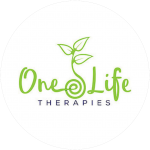What counts as self-care? Is it going for a run? Booking a massage? Getting a good nights sleep? Or eating well?
The simple answer is that it can be all of these things and more. It really depends on what your individual needs are. It's certainly true that there are some cornerstones of good mental health that will help us all to feel better if we pay attention to them: sleep, movement, nutrition, connection with others, engaging in meaningful activities, as a few examples. But what we each need and when we need it can vary a great deal depending on a number of factors, such as the time of day, what else is going on in our lives, what we have access to, what makes us individually feel good, what we enjoy and our way of being in the world.
Self-care activities will differ from person to person and day to day. We need to have a whole menu of things that help us to meet out needs, so that we can choose what feels right at any given time.
It can help to start to think about what works for you in terms of different areas or categories. You might like to consider the following broad headings and then add any extra of your own that feel right for you.:
- Physical (taking care of your body) eg nutrition, exercise, going for health checks, sleep, stretching, yoga
- Mental (taking care of your brain/thoughts) eg learning new things, acquiring skills, challenging oneself, coaching, mindfulness
- Emotional (taking care of your heart and mind) therapy, talking to a trusted loved one, journalling
- Relational (taking care of your relationships and making meaningful connections) eg time with friends/family, connecting with like minded individuals, community/belonging
- Spiritual (taking care of your soul) eg faith, sound baths, meditation, prayer
- Joyful (taking care of your creativity/joy) eg singing, arts and crafts, hobbies, painting, baking, gardening
One fun way to think about what your personalised version of self-care looks like is to do my self-care jug activity. It's a creative way of working that I use in the room with clients but you can do it at home any time. All you need is a piece of plain paper and some pens (make it as colourful as you like). It comes from this idea that you may have heard of before, which is 'you can't pour from an empty jug.' Doing this exercise every few weeks can be a lovely way of checking in with where you're at and what you need. And remember, self-care needs will vary over time, so the jug and what you need from it will change over time too.
- Imagine yourself as the jug. Draw a simple outline of a jug in the middle of the page (no need to worry about artistic skills here, it's just for you). Think of this jug as a visual representation of your personal 'capacity' (the energy you have on any given day to cope with what life throws at you)
- At the top of the jug, list all the self-care activities that you can think of that help you to feel replenished, refreshed, resilient, taken care of or nourished. Use the categories above to trigger some ideas and don't forget to consider what your unique needs are (see blog post 'What is self-care'). Add arrows to show these self-care activities being poured into the jug at the top. These are the ways that you 'top up' your capacity and take care of yourself. They can include things you currently do, things you used to do but had forgotten about or new things that you'd like to try.
- Once you've done that, consider the bottom of the jug next. There will always be things in life that challenge us and which drain our capacity to cope with life. Some examples might include the following: mental health challenges, caring for loved ones, work stress, financial worries, particular unhealthy relationships, illness, life admin, everyday chores. Think big and small here. The small aggravations in life can build up and use up a lot of psychological energy over time. Draw arrows from the jug to these labels to indicate their depleting effect.
- Draw a line in the jug to indicate where your capacity is at in that particular moment. Don't beat yourself up if it's low right now; you've taken the first step in caring for yourself better and this new awareness will spur you on to improve things even more.
- An additional step, which you might like to do as a separate exercise at a later time, if you're running out of self-reflective steam, is to take a look at the balance of replenishing and depleting labels. Can you name just two of three things that you can do now to a) add in more self-care at the top or b) plug the holes a little at the bottom eg by reducing the impact of that particular stress point?
Have fun and remember, caring for the ones you love, starts with caring for yourself.
Warm wishes,
Nicky x

